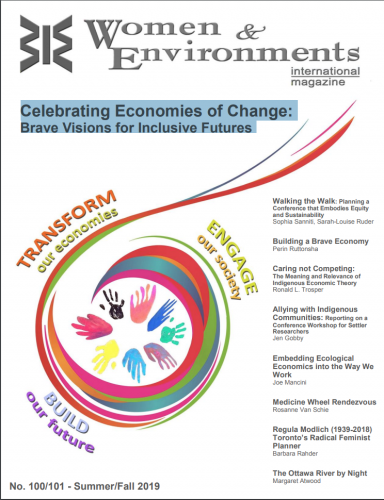Climate chaos and worsening income disparities (both local and global) make it more important than ever to forge respectful alliances between academics
and frontline community activists — the majority of whom are women. Information-sharing of many varieties, and mobilizing this knowledge for local grassroots action as well as policy formation (and removing perverse policies!), should happen hand-in-hand.
This issue of Women and Environments International magazine explores promising ways to facilitate such communication – the processes, challenges, and how to overcome barriers.
This issue has been inspired by a path-breaking conference held by the Canadian Society for Ecological Economics (CANSEE), which took place this past May 2019 in Waterloo, Ontario. Entitled Engaging Economies of Change, the conference aimed to expand existing research networks in the ecological economics nexus by building connections beyond the academy in order to meaningfully engage with the practicalities of building and implementing
change. This issue captures the rich content shared during the event, as well as descriptions of the processes and efforts made to create a welcoming and respectful space where academics and community activists could build alliances and discuss common challenges. The conference organizers – all graduate students and activists themselves — called this ‘building a brave space’.





